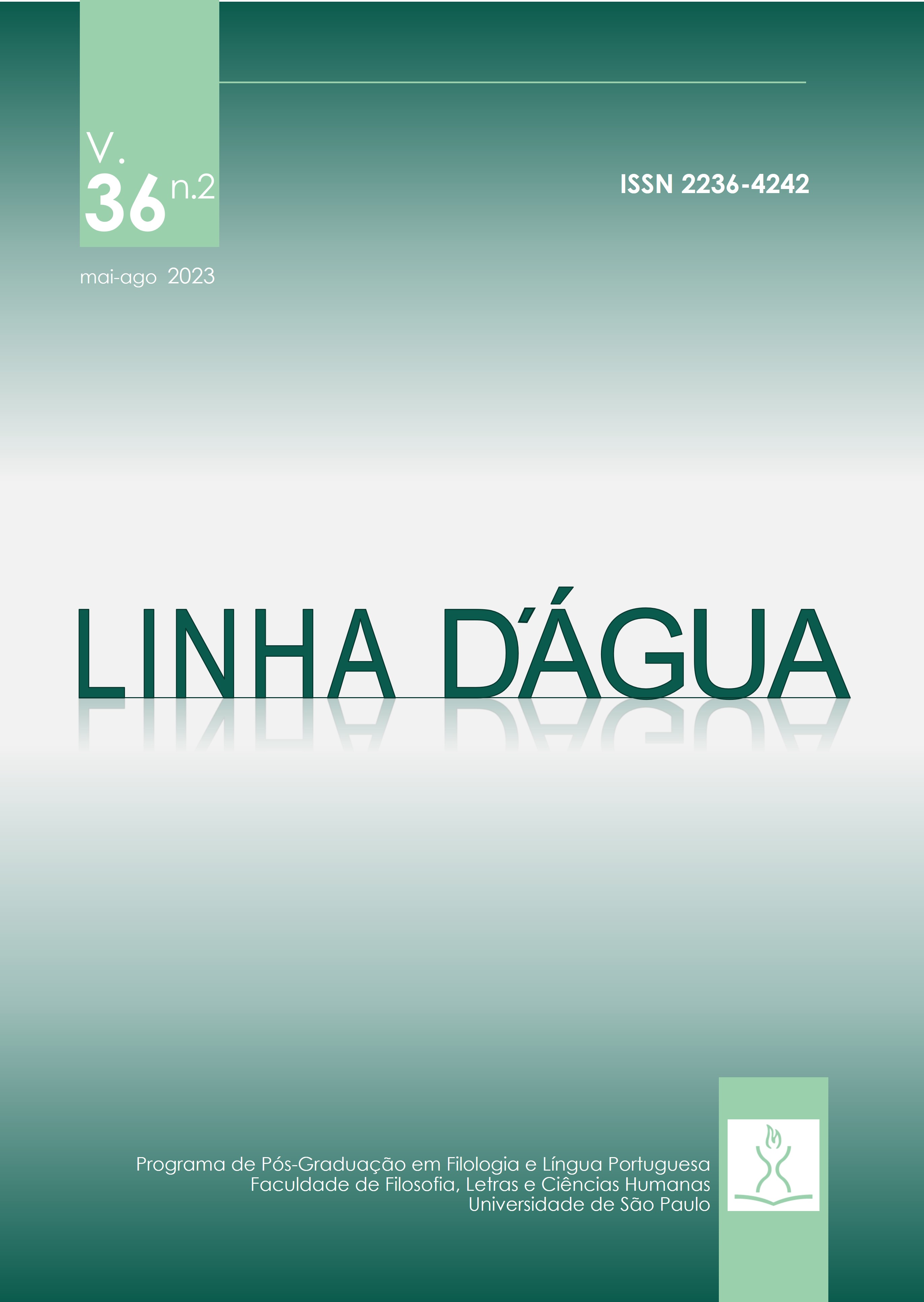Manipulation of Facts and Opinions. The Presidential Debate between Marcelo Rebelo de Sousa and André Ventura (2021)
DOI:
https://doi.org/10.11606/issn.2236-4242.v36i2p90-105Keywords:
Presidential elections, Speech analysis, Argumentation and Persuasion Strategies, Ethos, PathosAbstract
This work aims to propose a linguistic and discursive analysis of the argumentation and persuasion strategies predominant in the debate of January 6, 2021 for the presidential elections in Portugal. The study focuses on the manipulation strategies of the speakers and candidates. We focus on the nature of manipulation objects, as well as on the configurations that this manipulation assumes in the discursive genre in question and its purposes. We examine the appeal to emotions, values and change made by the two candidates. The objects of study are the images (ethos) that political opponents build of themselves and the other in and through discourse, the emotions (pathos) that their words arouse, the main axiological values of the lexemes and expressions used, and the modes of refutation of facts and points of view convened. This study is part of the perspective of discourse analysis, as well as the framework of the study of argumentation, namely argumentation in political discourse.
Downloads
References
AMOSSY, R. L´argumentation dans le discours. 3.ª ed. Paris: Armand Colin, 2012.
BROWN, P.; LEVINSON S. Politeness. Some universals in language use. Cambridge: Cambridge University Press, 1987.
CHARAUDEAU, P. Le discours politique: les masques du pouvoir. Paris: Vuibert, 2005.
CHARAUDEAU, P. Pathos et discours politique. In: RINN, M. (Dir.). Émotions et discours. L´usage des passions dans la langue. Rennes: PUR, 2008, p. 49-5
CHARAUDEAU, P. Réflexions pour l’analyse du discours populiste. Mots. Les langages du politique, n. 97, p. 101-116, 2011. Disponível em: http://mots.revues.org/20534. Acesso em: 27 out. 2022.
CHARAUDEAU, P. Du discours politique au discours populiste. Le populisme est-il de droite ou de gauche? In: CORCUERA F. et alii (Dir.). Les discours politiques. Regards croisés. Paris: L’Harmattan, 2016, p. 32-43.
DUARTE, I. M.; PINTO, A. G.; SALGADO, S. Estratégias discursivas do discurso político populista em Portugal: Estado Novo e movimentos nacionalistas atuais. In: MARQUES M. A.; DE SOUSA, S. G. (Org.). Linguagens de poder. Braga: Centro de Estudos Humanísticos da Universidade do Minho, 2019, p. 35-53.
GRICE, H. P. Logic and conversation. In: COLE, P.; MORGAN, J. L. Morgan (Ed.). Syntax and semantics, vol. III, Speech Acts. New York: Academic Press, 1975, p. 41-58.
JSSELING, S. I. Rhétorique et Philosophie. Revue Philosophique de Louvain, v. 4, n. 22, p. 194-195, 1978.
KERBRAT-ORECCHIONI, C. Le discours en interaction. Paris: Armand Colin, 2005.
KERBRAT-ORECCHIONI, C. Les débats de l’entre-deux-tours des élections présidentielles françaises. Constantes et évolutions d’un genre. Paris: L’Harmattan, 2017.
MAINGUENEAU, D. Ethos, scénographie, incorporation. In: AMOSSY, R. (Dir.). Images de soi dans le discours. Lausanne: Delachaux et Niestlé, 1999, p. 75-100.
MARQUES, M. A. Debate, argumentação e organização enunciativa. Comunicação e Sociedade, v. 8, 2005, p. 47-62.
MARQUES M. A. Discordar no Parlamento: estratégias de argumentação. Revista Galega de Filoloxía, n. 8, 2007, p. 99-124.
MARQUES M. A. La reprise dissensuelle dans le discours politique parlementaire - du dialogal au dialogique. Cahiers de Praxématique, n. 57, 2011, p. 133-146.
MARQUES, M. A. Politique, humour et campagne électorale. Les enjeux d´une politique-spectacle. Mots. Les Langages du Politique, n. 101, p. 61-75, 2013. DOI: https://doi.org/10.4000/mots.21146.
MARQUES, M. A. Debate eleitoral português: presidencialização e estratégias de atenuação linguística em situação de confronto político. Linha D'Água, v. 30, n. 1, p. 9-33, 2017. DOI: https://doi.org/10.11606/issn.2236-4242.v30i1p9-33.
MICHELI, R. Emotions as objects of argumentative constructions. Argumentation, v. 24, n. 1, p.1-17, 2010.
MONOD, J.-C. Vérité de fait et opinion politique. Esprit, v. 10, n. 10, p. 143-153, 2017. DOI: https://doi.org/10.3917/espri.1710.0143.
PLANTIN, C. L´argumentation. Paris: Seuil, 1996.
SANDRÉ, M. Analyser les discours oraux. Paris: Armand Colin, 2013.
WALTON, D. The place of emotion in argumentation. Pennsylvania: The Pennsylvania State University Press, 1992.
Downloads
Published
Issue
Section
License
Copyright (c) 2023 Ana Cristina Braz, Isabelle Simões Marques

This work is licensed under a Creative Commons Attribution-NonCommercial 4.0 International License.
The Editorial Board authorizes free access to and distribution of published contentes, provided that the source is cited, that is, granding credit to the authors and Linha D'Água and preserving the full text. The author is allowed to place the final version (postprint / editor’s PDF) in an institutional/thematic repositor or personal page (site, blog), immediately after publication, provided that it is available for open access and comes without any embargo period. Full reference should be made to the first publication in Linha D'Água. Access to the paper should at least be aligned with the access the journal offers.
As a legal entity, the University of São Paulo at Ribeirão Preto School of Philosophy, Sciences and Languages owns and holds the copyright deriving from the publication. To use the papers, Paidéia adopts the Creative Commons Licence, CC BY-NC non-commercial attribution. This licence permits access, download, print, share, reuse and distribution of papers, provided that this is for non-commercial use and that the source is cited, giving due authorship credit to Linha D'Água. In these cases, neither authors nor editors need any permission.
Partial reproduction of other publications
Citations of more than 500 words, reproductions of one or more figures, tables or other illustrions should be accompanied by written permission from the copyright owner of the original work with a view to reproduction in Linha D'Água. This permission has to be addressed to the author of the submitted manuscript. Secondarily obtained rights will not be transferred under any circumstance.










